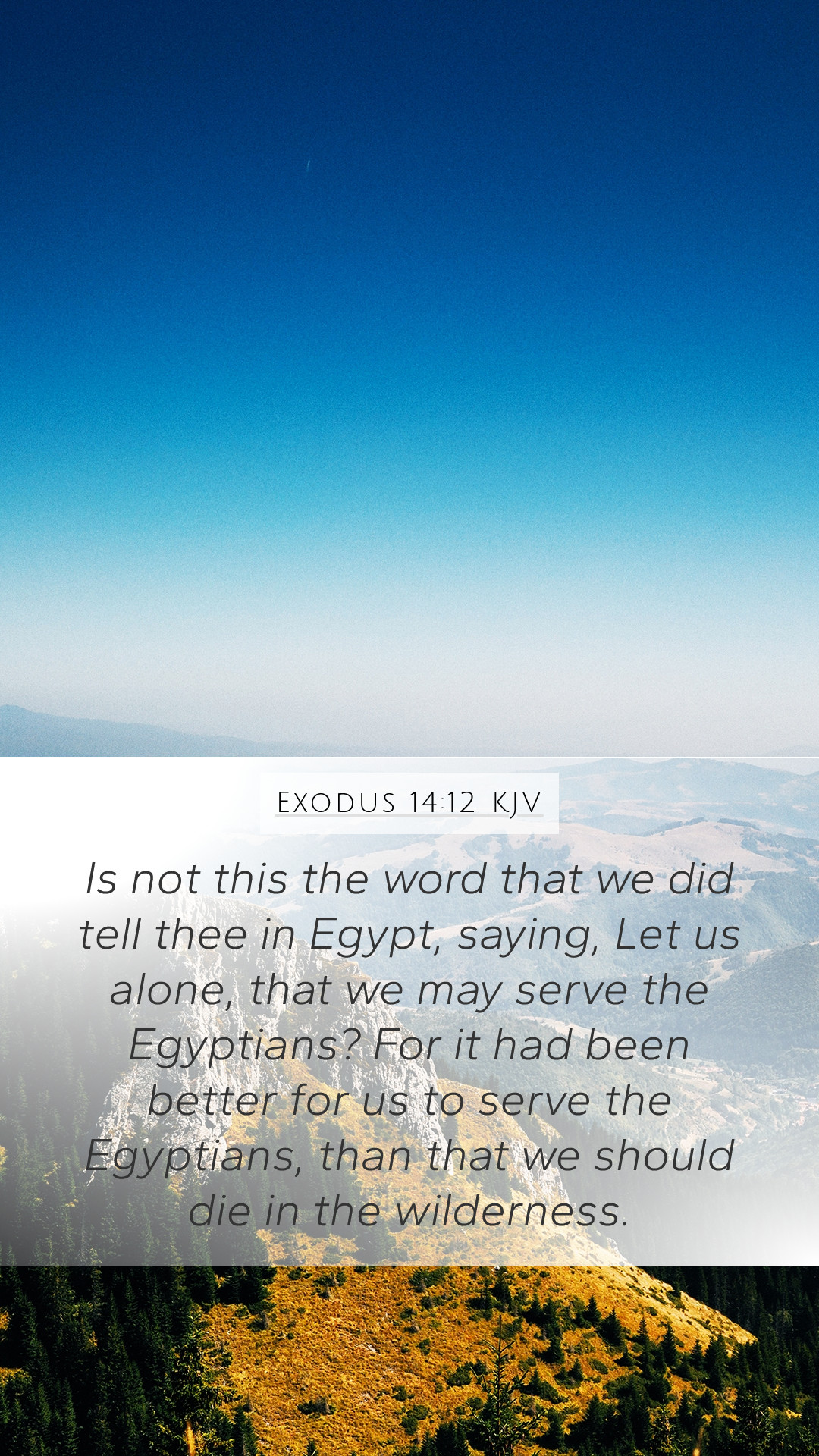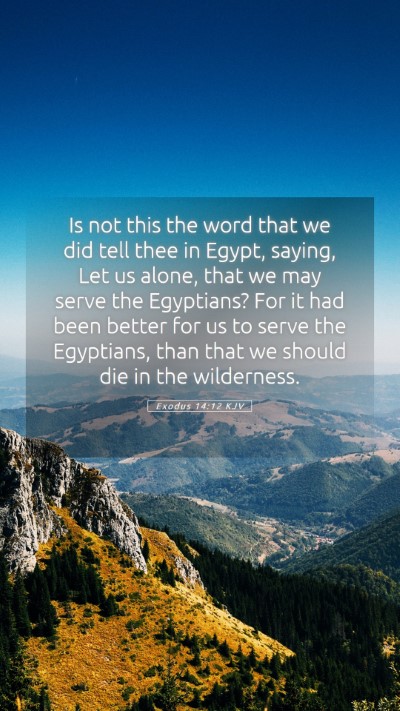Exodus 14:12 - Understanding Scripture
Bible Verse: “Is not this the word that we did tell thee in Egypt, saying, Let us alone, that we may serve the Egyptians? For it had been better for us to serve the Egyptians, than that we should die in the wilderness.”
Bible Verse Meaning
The verse from Exodus 14:12 reveals a moment of crisis for the Israelites as they face the pursuing Egyptian army. Their fear and doubt manifest in a questioning tone directed towards Moses, expressing a desire to return to the perceived safety of slavery rather than facing the uncertainty of freedom in the wilderness. This moment serves as a poignant reflection on human nature, especially when confronted with fear and the unknown.
Insights from Public Domain Commentaries
-
Matthew Henry’s Commentary
Henry points out that the Israelites’ complaint reveals their lack of faith in God's power and plan. He emphasizes the irony of their desire to return to bondage rather than embrace the liberation that God had orchestrated. Their cry signifies a moment of weakness and highlights how difficult situations can cloud one's judgment and lead to despair.
-
Albert Barnes’ Notes
Barnes interprets the verse as a significant reflection of the Israelites’ distrust in divine providence. He explains that they are expressing a preference for a known painful situation over an uncertain future. This highlights a common struggle in spiritual journeys, where immediate trials can lead believers to question God's promises and provision.
-
Adam Clarke’s Commentary
Clarke discusses the emotional turmoil faced by the people at this moment. His analysis reveals how their previous experiences in Egypt cloud their ability to see the miracles God has already performed for them. He identifies this as a critical turning point in their journey, showcasing their struggle between faith and fear.
Bible Verse Interpretations
Exodus 14:12 serves as a profound illustration of how adversity can provoke fear, leading us to wish for the comfort of familiarity, even if it is detrimental. The verse encourages readers to reflect on their own experiences where fear may have clouded their faith, urging the importance of remembering God's past deliverances and trusting in His future plans.
Application of the Verse
This passage can be applied to daily life in various ways:
- Facing fears and uncertainties with faith rather than retreating to comfort zones;
- Recognizing past blessings as a means to build confidence in God's ongoing guidance;
- Encouraging others who may feel overwhelmed to trust in God's provision instead of succumbing to despair.
Historical Context
The historical backdrop of Exodus is critical to understanding this verse. The Israelites had just witnessed miraculous plagues in Egypt and the parting of the Red Sea. Despite these miracles, their fears of the Egyptians led them to question Moses and God's intentions, revealing the challenging human condition of doubt in the face of adversity.
Related Bible Verses
- Exodus 3:19-20: God's forewarning of Pharaoh's resistance.
- Exodus 14:10: Israelites’ fear at the sight of the Egyptians.
- Numbers 14:2-4: Further instances of complaints against Moses.
Conclusion
Exodus 14:12 teaches valuable lessons about faith and fear. It serves as a reminder for readers to trust in God’s guidance and deliverance, especially during challenging circumstances. Each believer’s journey may encounter moments similar to the Israelites, but holding onto hope and faith can lead to spiritual growth and deeper reliance on God’s promises.


